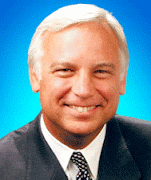By Mark Bowser
I came across a story one time which I think illustrates beautifully how we
need to take care of our prospects when selling. The story goes something
like this. It is about a man who lived in a forest in the eastern Alps
overlooking an Austrian village. This old man had been hired years ago by a
wise town council to make sure the mountain waters flowed freely into the
wonderful spring which flowed into the quaint village.
The old man faithfully year after year removed leaves, twigs, and everything
that could contaminate or clog the flowing water. As a result, the village
spring was an attraction for vacationers and swans alike. The village was
peaceful, happy, and blessed.
One night, years later, another town council began talking about the almost
mythical keeper of the spring. They wondered, "Why are we paying this man?
Does anyone ever see him? This money could be used for better purposes."
As a result, they decided to terminate the services of the old man.
For a while, everything stayed the same. The spring was beautiful and the
village blossomed. But then came autumn. The trees began to loose their
grip on their leaves. Twigs and branches broke off the trees and fell into
the stream.
One day, someone noticed something different about their wonderful spring.
It was changing to a different color. Soon a haze came over parts of the
spring and a sickening smell began to hover around it. The vacationers left
the lovely village. The swans decided to look for a new home.
The town council called an emergency meeting. They realized what a terrible
mistake they had made by firing the old man of the forest. They immediately
hired him back. The old man got to work and performed the miracle again.
Within a few weeks, the life-giving water was flowing freely and surely to
the village spring. Soon all was normal, healthy, and blessed.
Many times we treat our prospects and customers much like the town council
treated "the keeper of the spring." We appear to have no use for them and
we take them for granted. Remember this, without them, we have no sales.
My dad used to tell me all the time growing up in our family business. "Our
customer (and prospect) is our life blood." I leave us today with a sales
thought to ponder? Are we taking care of the "keeper of the springs" in our
lives?
Vision, Connection, & Direction: The Pathway to Effective Communication
John C. Maxwell
By communicating a message of hope and significance to his oppressed
countrymen in Poland, Pope John Paul II played a lead role in toppling
communism in Europe. He affirmed the dignity and humanity of Poles, rallying
them to resist communism, while at the same time teaching them to show
restraint when confronting the communist authorities. The vision,
connection, and direction he conveyed to people in his homeland as they
struggled against a repressive regime altered the course of world history.
VISION
When Pope John Paul II spoke, the world listened. A powerful, personal
vision gave force to his words. It was a vision birthed in tragedy and
refined through years of patient suffering.
As a young man Karol Wojtyla experienced firsthand the horrors of Nazi
Germany. As the Nazis swept into Poland, they shut down the university he
was attending, executed several of its professors, and carted off many of
his Jewish friends. Enduring the cruelties of the German occupation and
witnessing the violations of his country fueled Wojtyla's passionate vision
of the rights each human ought to have.
In World War II, the Soviet Union "liberated" Poland. In reality, one system
of tyranny simply replaced the other. As a young priest and then bishop,
Wojtyla learned how to operate under the watchful eye of a restrictive
communist government. He carried out his duties within the church boldly yet
shrewdly, expanding its influence without provoking official backlash from
the government. The experiences shaped his vision, schooling him in the
strategies that would later aid him in undermining communism as Pope.
CONNECTION
Pope John Paul II connected to people because he identified with their
hopes, their troubles, and their fears. Journalist Neal Ascherton, who
accompanied the Pope on his early visits to Poland, marveled at his ability
to connect with the audience-even when crowds numbered in the hundreds of
thousands. "Each person got the impression the Pope was really speaking to
them, that he was exclusively available for them." John Paul II valued
people, and since he understood them, he could offer a hopeful message that
made them feel significant. His optimistic words stood in stark contrast to
the bleak, unpromising future that communism seemed to have in store.
DIRECTION
Soviet-style communism relied upon propaganda, or officially sanctioned
lies, to sustain itself. The government manipulated the public debate by
controlling the media, and consequently, people were exposed to a steady
diet of misinformation. Through time, it became confusing for them to
distinguish between reality and fiction.
John Paul II gave the people of Eastern Europe a moral compass to guide them
as they navigated life in a communist system. His ideals served as a
reference point, helping them to distinguish between right and wrong, truth
and farce. Thanks to his position as head of the Catholic Church, the Pope
could freely voice ideas that were distasteful to the existing communist
authorities without having to fear reprisal.
Even though he inspired people to seek freedom, John Paul II was very subtle
in his criticisms of communism. He was careful not to provoke the crushing
retaliation of the Soviet military by fomenting a violent revolution.
Through the papacy, John Paul II modeled the strategy by which communism
would be undone: persistence of belief coupled with patient, restrained
resistance.
SUMMARY
To say that one man toppled communism in Europe would be an overstatement,
but perhaps nobody contributed more to its demise than Pope John Paul II.
His prowess as a communicator allowed him to attain enormous influence
within the subjugated nations of the Eastern bloc. By voicing a compelling
vision, connecting emotionally with people, and modeling the direction
forward, he transformed the political institutions of Europe.
"This article is used by permission from Leadership Wired, GiANT Impact's
premiere leadership newsletter, available for free subscription at
www.giantimpact.com ."
Have you heard the new singing group 4 Troops? The group is made up of 4
military persons. They are awesome. In fact, a good friend of mine Matt
Moran wrote their hit single For Freedom. Check it out at itunes or
pre-order the album at amazon.com.
Mark E. Bowser
President/CEO
Empowering Enterprises, Inc.
7723 Tylers Place Blvd. #280
West Chester, OH 45069
(513)252-GOAL
Superior Training, Superior Results!
Check out our Complimentary Success Newsletters at www.MarkBowser.com &
www.TakeActionSales.com
Come follow me on Twitter http://twitter.com/MarkBowser
Connect with me on LinkedIN
http://www.linkedin.com/in/markbowser
Come visit Mark Bowser's blogs www.SalesTrainingToday.blogspot.com &
www.LeadershipStylesToday.blogspot.com




+048.jpg)
+051.jpg)
+031.jpg)



.jpg)
.jpg)


1 comment:
Mark, you think its appropiate to credit yourself by affiliation with John C. Maxwell. Have you actually participated together with John in such a training?
Post a Comment